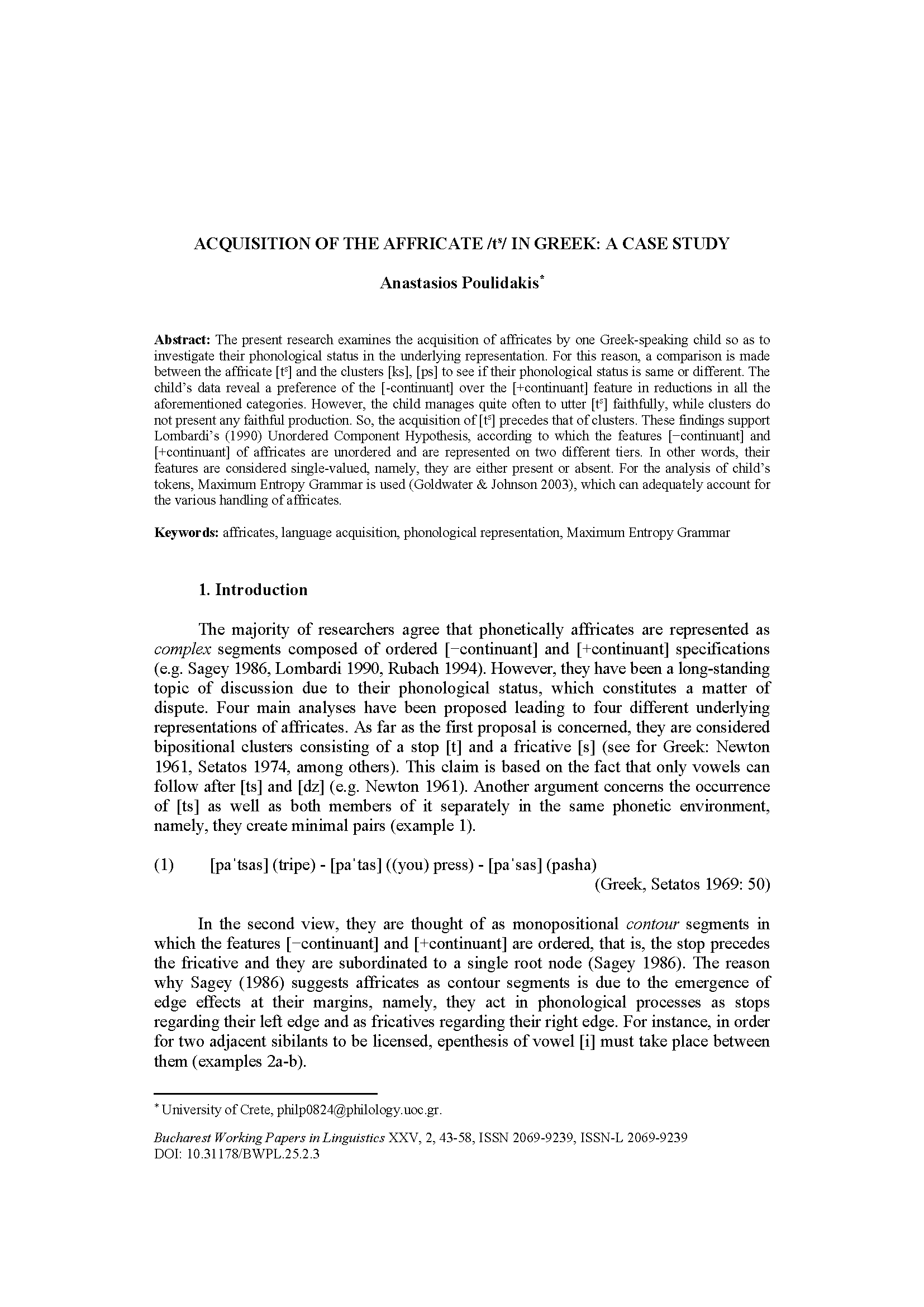ACQUISITION OF THE AFFRICATE /ts/ IN GREEK: A CASE STUDY
DOI:
https://doi.org/10.31178/BWPL.25.2.3Keywords:
affricates, language acquisition, phonological representation, Maximum Entropy GrammarAbstract
The present research examines the acquisition of affricates by one Greek-speaking child so as to investigate their phonological status in the underlying representation. For this reason, a comparison is made between the affricate [ts] and the clusters [ks], [ps] to see if their phonological status is same or different. The child’s data reveal a preference of the [-continuant] over the [+continuant] feature in reductions in all the aforementioned categories. However, the child manages quite often to utter [ts] faithfully, while clusters do not present any faithful production. So, the acquisition of [ts] precedes that of clusters. These findings support Lombardi’s (1990) Unordered Component Hypothesis, according to which the features [−continuant] and [+continuant] of affricates are unordered and are represented on two different tiers. In other words, their features are considered single-valued, namely, they are either present or absent. For the analysis of child’s tokens, Maximum Entropy Grammar is used (Goldwater & Johnson 2003), which can adequately account for the various handling of affricates.




